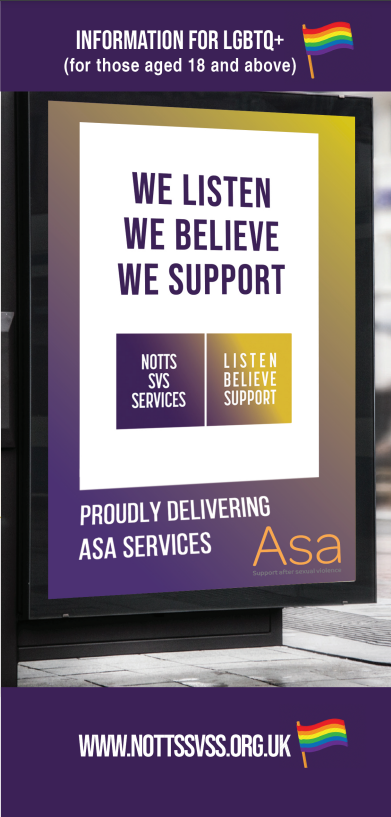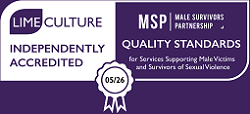Support for LGBTQ+
At Notts SVS Services, we know that there is no typical survivor.
At Notts SVS Services we know that there is no typical survivor. A survivor’s experiences and needs are all individual and we will work with you to ensure you get the right support for you.
Our services are confidential and non-judgmental. We will listen to and support you no matter when or how it happened.
You deserve support
We know that people who identify as LGBTQ+ may have specific fears about:
- being perceived as responsible for the abuse
- encountering homophobic, biphobic or transphobic services
- what will happen to them or their loved ones if they get help
We believe that
- responsibility always sits with the perpetrator
- sexual violence can happen in any relationship
- sexual violence or child sexual abuse is not the result or cause of a person’s gender identity or sexuality
- someone always has the right to say no or withdraw consent, even if they have been engaging in consensual sexual activity or have consented in the past
- an adult does not need to report to the police to get support
We will never judge you, focus on or out your sexuality or trans status. We will listen to you and support you no matter when or how the abuse happened.
A Note for Trans and Non-Binary Survivors
We know that people who are trans, non-binary or whose gender does not match that which they were assigned at birth can be worried about how different services will respond to them. You might be concerned that you will not be able to access certain services because you do not have a GRC or have not undergone certain procedures.
Your gender is not dependent on certificates, hormones or surgery. We will always respond to you in the gender you give us, using the pronouns you have chosen. We will work with you to ensure that you get the support you want in the way that best meets your needs. You can read our Trans Inclusion Policy for more information and talk to us if you have any concerns.
Myths and Stereotypes
We dismantle some of the myths that might act as a barrier to you getting support
There are many myths and stereotypes which can especially affect LGBTQ+ survivors of sexual abuse. None of these are helpful and they can act as a barrier to stop people getting support.
Our support staff are aware of these unhelpful myths and the impact it can have on you as a survivor. We actively challenge these myths through our media and campaign work.
Myth: Abuse in LGBT relationships is mutual
Reality: Abuse can happen in any relationship including those which are LGBT+. Abuse happens when one person chooses to abuse another. Sometimes people abuse LGBT+ people knowing that it might be more difficult for them to ask for help, because of fear of homophobic, biphobic or transphobic services.
Research suggests that people who are LGBT are as likely to experience sexual violence as straight people. Trans people are even more likely to experience sexual violence than those who are cis-gendered.
Myth: Only gay men and boys are sexually abused.
Reality: Being sexually assaulted does not relate in any way to your sexuality and people can experience this whether they are straight (heterosexual), gay or bisexual. Being gay does not mean that you attracted an assault or deserved to be assaulted. Gay people deserve to access support and should be confident in doing so without fear of being judged or outed.
Myth: If I was drinking or taking drugs, it was my fault.
Reality: If you had been taking drugs or were drunk, this does not give somebody the right or excuse to assault you. It doesn’t matter if you were drunk, high, stoned or unconscious, if a person decides to abuse you, it is not your fault. You are not to blame.
Myth: Sexual abuse makes you gay.
Reality: Being sexually abused can make a survivor question their sexual orientation. People can be especially worried if they had a physical reaction or they are a gay adult who was abused in childhood. Research suggests that being abused does not have an effect on sexual orientation. We understand that survivors may have questions about this or are unsure about their identity.
Myth: Having a physical response to abuse means that it wasn’t really abuse.
Reality: Having a physical response to abuse does not mean that you wanted it or enjoyed the assault. They do not indicate anything about your sexual orientation.
Having a physical reaction while being abused can be very confusing for a survivor and sometimes a perpetrator may use this to minimise what happened and prevent them from getting help.
Myth: Being sexually abused will make you an abuser.
Reality: This is a damaging myth and can stop people getting the support they deserve. The majority of people who have experienced abuse as a child or an adult will not go on to abuse others.
Myth: It is only really sexual abuse if you reported it to the police
Reality: The majority of people who are raped or sexually abused do not report it to the police. LGBT people may be fearful of making a report, particularly when they have experienced phobic services in the past. We know that the LGBT community can be a small one and so it is important that people who experience abuse can get support without the fear of being outed. You do not have to report to the police to get support or have your experiences validated.
Myth: People who are bisexual or pansexual like all sex and they cannot be abused
Reality: People who are bisexual or pansexual have the same freedom to consent or withhold consent to any sexual interactions. A person’s sexual orientation has no impact on the amount or type of sex a person likes.
Myth: People who are polyamorous will have sex with anyone
Reality: A person who is polyamorous has the same right to choose whether or not they want to have sex with a person or people. A person’s sexual orientation should not be used as an excuse to abuse them.
Useful Resources
You can find out more about the services we offer by downloading our leaflet for LGBT+ survivors opposite.



